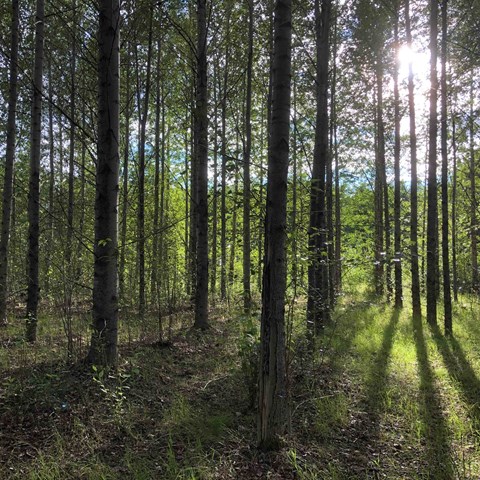This workshop focuses on involving different stakeholders in current research on fast-growing broadleaves. Decision-makers who shape our landscapes with various regulations, farmers and foresters who plant crops and produce food, feed and woody raw materials, local authorities in county administrations who own and lease out agricultural land, marginal land, industrial land, forestland and are willing to re-think how to manage these areas – you all are warmly welcome!
Fast-growing broadleaves have been an important part of northern agricultural landscapes and forests in the past. The sectoral division of land use after the industrialization of agriculture and forestry has led to a decline of these tree species and ecosystem services connected to them in our landscapes. The industrial demand for only coniferous wood, has led to Swedish forests being managed as monocultures of either spruce or pine for decades. However, fast-growing broadleaves provide raw material for products such as textiles that cannot be manufactured from coniferous wood.
The demand for raw material of fast-growing broadleaves in an existing textile pulp mill in Sweden, will favour a more diversified land use. Today, we have technologies that can use wood from these fast-growing broadleaves to produce textiles. However, there is a shortage of these trees in our country.
We will show how textile pulp from wood is made and discuss what are the requirements for pulpwood used for textile pulp in the mill in Mörrum. The following workshop gives possibilities to interact with young researchers, landowners, industry representatives and discuss current research on fast-growing broadleaves. We aim to initiate a conversation between stakeholders and young researchers on how to include fast-growing deciduous trees in our land use – both in agricultural landscapes and on forestland. How can we manage our forests effectively by including fast-growing broadleaves? How to combine tree species with different rotation times and ecological adaptations on our forestland? What ecosystem services can fast-growing broadleaves provide in our agricultural landscapes?
